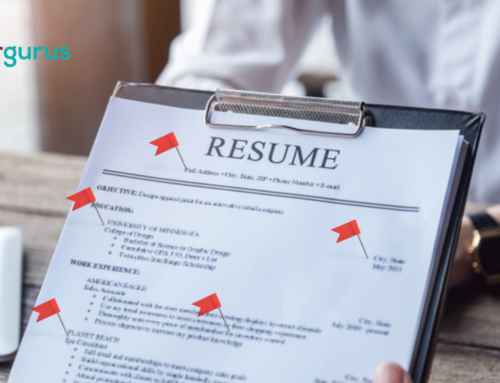The COVID-19 pandemic has now been going since January 2020 and Australia entered their first version of lockdown in March 2020. If you are lucky enough to live in Melbourne, you have now officially been in some form of lockdown for 7 months, after we were initially told we needed just 2 weeks to “flatten the curve” (seems pretty flat to me right now but anyway, I digress).
Just to put it into context, we have 5 million people in Stage 4 lockdown and we weren’t permitted to travel more than 5kms in our two hours of “leisure” time and the majority of businesses remained closed. Last weekend, the 5kms was extended to 25kms and some businesses were given the green light to reopen but hospitality (the life blood of Melbourne) still remains closed. Melbournians are now facing a Grand Final at home with not one friend or family member to cheer along with. Crazy times.
Walking around Melbourne it is literally a ghost town, many hospitality and retail businesses boarded up and families and business owners bearing the brunt and cost of the second wave. Lives ruined, livelihoods in tatters and small business owners (who are the biggest employer in Australia) being asked once again to hold tight as they collectively wait and pray that they can open their doors sooner rather than later. The announcement on Sunday was yet another disappointment for many.
So the uncertainty continues and as we rattle along towards Christmas, many jaws clenched Victorians, Melbournians and Australians are starting to wonder what the future looks like and how much longer we can “do the right thing” and “stay the course.”
7 months of restricted business operations is starting to wear thin and government support in the form of JobKeeper and business grants does not pay the rent. Without Christmas trade many businesses will simply disappear.
The economic impacts of COVID are apparent and easy to quantify, but after working on the front-line supporting business owners, many other more subtle impacts are now beginning to surface. This event will no doubt change the way we do business forever. And there is the good, the bad, and the downright ugly.
Let’s start with some of the good!
Move towards flexible work and improved work life balance
We have been talking about achieving the utopia of work life balance for years and many businesses have pretended to offer some form of flexible work for just as long. The Fair Work Act even mandated this as workplace right, but the reality is COVID-19 has forced businesses to trial the biggest “work from home experiment” in history. Many businesses who claimed that people “had to attend the office” to do their jobs have been proven completely wrong. Many people are literally thriving in this new normal and the future of work in our opinion, will be a hybrid approach, more flexible and certainly more productive.
Reduced emissions
Daily carbon emissions have plummeted since Covid-19 lockdowns took effect—backing up earlier predictions that the pandemic could lead to the largest decline since World War II. Experts are still unsure if the changes will last long enough to make real progress in curbing climate change, a recent Forbes report claimed.
According to a study by Nature Climate Change, daily carbon emissions dropped by 17% from January to early April compared to last year.
The biggest drops in emissions were driven largely by China and the US who are the worst offenders and the hardest hit by the pandemic.
In some countries average daily emission dropped as much as 26% during the peak of their lockdowns. The annual global decline could be anywhere from 4.4% to 8%. All good news for our planet but we must not rest on our laurels as experts are saying unless the decline is sustained, it may not have much of an impact on our fight against climate change. So, the move to work from home will surely not only have benefits for the workers but hopefully it will also impact the amount of people driving cars to work. Win/win!
Innovation
According to an article in entrepreneur.com, COVID-19 is set to fuel the next wave of innovation. Sounds crazy but if we look back at history, every single unpredictable or black swan event such as economic recessions or pandemics, change the trajectory of governments, economies and ultimately businesses. It’s fair to say the world will be forever changed post COVID as we prepare for the “new normal”, whatever that means.
According to the article, pandemics have a massive impact on biological, psychological and economic factors and if we look at history as an indicator, longer term innovation and changes in trends will come about as consumers and businesses scramble to normalise the impact of all these factors. Recessions normally accelerate business model change, driving down costs to serve and prices, whilst pandemics tend to enable entirely new categories of businesses. We are in the midst of both and according to the article there are three major innovations we can expect to see as a result of COVID:
- Supply chains merging into resilient ecosystems – rather than an overreliance on superpowers like China which exposed a massive risk for many countries during the peak of the pandemic. Australia recently announced mass funding to reinvigorate our manufacturing sector which is a massive bonus in terms of jobs and growth.
- Digitised bureaucracies will become mainstream – as the pandemic caused governments to spin into action quicker than ever before and the only way to do that was to utilise digital technology platforms. Smart cities that were set up for digital tracking have certainly outperformed those who weren’t during the outbreak. Many larger cities have been exposed as lacking the tech infrastructure to cope with a pandemic.
- Mental health support will be provided at scale, digitally – the impact of the pandemic on mental health particularly as we moved to a remote work model have been significant. HR functions all over the world are scrambling to innovate and add “human touch” digitally to their workplaces. Unfortunately, there are not too many options to do this right now but is something we are going to see a massive shift towards in the future.
Let’s have a look at some of the bad
Impacts on mental health and costs associated with this for business
As mentioned above, the impact on mental health for workers and businesses has been enormous. With suicide rates skyrocketing in Australia during lockdowns, workplaces have had to learn to cope and support workers as they deal with social isolation, job losses and insecure work. This year Lifeline has seen a 25 per cent increase in calls initially driven by the bushfires and then COVID-19. When stage 4 restrictions were announced, the calls from Victorians jumped by 30 per cent.
Headspace has also reported an estimated 50 per cent rise in referrals for young people who have been admitted to a hospital emergency department because of a mental health crisis. They are seeing an increase in risk of suicide, risk of self-harm, a lot more of those troubling behaviours and this is an issue rife across the state.
In early August, a week into stage 4 lockdown, the Victorian Government revealed there had been a 33 per cent increase in young people presenting to emergency departments because of intentional self-harm, compared to the same time in 2019.
Many of them are year 12 students struggling to cope with what has happened to their final year of school. Most people are struggling with disengagement, a loss of hope and people are really struggling to stay engaged and motivated. This in turn would be having an enormous impact on workers ability to deliver and be productive and once again businesses are bearing the brunt of the cost of this. We recommend ensuring you have an EAP (Employee Assistance Program) in place to support your workers.
Personal leave epidemic
Okay so this might be less of a surprise, but we are seeing a huge increase in the number of employees exhausting their personal leave balances.
We believe this is partly due to the fact that employees are not and have not taken annual leave since March (the start of COVID-19) so the burnout is real. Additionally, no matter how minor the symptoms, employees are now being strongly encouraged to stay home if they are unwell. This is due to the apparent risk of employees spreading COVID-19 in the workplace but this is causing employees to deplete their personal leave balances quicker than ever before. It also raises an interesting question about the cultural norms in Australia, that if you have cold or are feeling a little under the weather, in the past there was an expectation that you “soldier on” and come to work. Whatever the reason, personal leave and paid sick leave is set to be a big cost and liability for businesses moving forward, with some industries adding paid pandemic leave to the already generous leave provisions they are mandated to offer in Australia.
Impacts on the job market due to JobKeeper/Seeker
With our unemployment rate on the rise due to the recession, you would expect that people would be applying for every vacant job under the sun, right?! Wrong! With the extremely generous Government assistance in the form of JobSeeker, people are less incentivised to apply for lower paid jobs because frankly, why would you when you can get paid to stay home? As the JobSeeker amount reduces, this may change but many employers are struggling to replace and find warehouse, production, transport, and aged care workers during the pandemic.
Financial impacts of annual leave
With border closures and tight 5km (now 25km) travel limits (Melbournians, you feel me?), the desire for employees to use their annual leave accruals in the current times is low. I mean, is using annual leave to sit at home really that exciting? We do not think so.
From a business perspective, having high annual leave balances banked for employees increases the financial liability on businesses significantly. Couple this with the tight regulations the Modern Awards put on employer’s ability to direct employees to take annual leave, unfortunately businesses are going to be left in a pretty precarious position at the end of all of this and need to start to manage this now. We recommend forced shutdowns over Christmas as an option.
The world post COVID
Covid-19 has not only been a terrible shock to the global economy, it has also impacted thousands of individuals, business and families across the globe. Companies in the immediate term need to ensure that the health and safety of its workers, partners and suppliers come first. Over the longer term, Covid-19 has irrevocably changed the way businesses will compete over the next decade. Businesses that choose to capitalise on these underlying changes will succeed and the ones that don’t will inevitable die out or at the very least get disrupted.
Continue Reading
Get a personal consultation.
Call us today at 1300 959 560.
Here in HR Gurus. We make HR simple because it should be.





